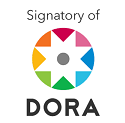Leadership as a tool for improving the public health management of a hospital
Abstract
The objective of the research was to propose leadership strategies as a tool to improve the public health management of a hospital. The methodology used was a non-experimental, field and descriptive level research design; Descriptive statistics were used to analyze the results. As a result, it was possible to diagnose that the organization's managers practice autocratic leadership, meaning that the heads of that work area make decisions without the participation of their collaborators; That is to say, there is an absence of democratic and participatory leadership strategies. In conclusion, it was demonstrated that the directors of the institution do not practice transformational leadership, considering that the directors of the organization do not foster positive attitudes of change in workers and the willingness to contribute ideas that improve the performance of human talent.
Downloads
References
Bass, B. M. (1985). Leadership and performance beyond expectations. New York, EUA: The Free Press. https://n9.cl/ltrhy
Chiavenato, I. (2001). Administración. Proceso Administrativo. [Administration. Administrative process]. (3ª ed.). México: McGraw-Hill. https://n9.cl/eax3
Chiavenato, I. (2009). Gestión del Talento Humano. [Human Talent Administration]. (3ª ed.). México: McGraw-Hill. https://n9.cl/9bfdi
Daft, R. (2006). La experiencia del Liderazgo. [The Leadership Experience]. (3ª ed.). México: Cengage Learning. https://n9.cl/3nbev
Dansie, R. (2005). Semillas de Esperanza. [Seeds of Hope]. Canadá: Trafford.
Koontz, H., y Weihrich, H. (2012). Administración. Una perspectiva global. [Administration. A global perspective]. (14ª ed.). México: McGraw-HILL Interamericana., S.A. https://n9.cl/prp4h
Maxwell, J. (2007). Líder de 360 grados. [360 degree leader]. Tennessee, Estados Unidos de América: Editorial Caribe. https://n9.cl/32neo
Newstrom, J. (2007). Comportamiento Humano en el Trabajo. [Human behavior at work]. (13ª ed.). México: McGraw-Hill Interamericana S.A. https://n9.cl/nrw6y
Newstrom, J. (2007). Dirección: Gestión para lograr resultados. [Direction: Management to achieve results]. (9ª ed.). México: McGraw-Hill Interamericana, S.A. https://n9.cl/47c3g4
Palella, S., y Martins, F. (2015). Metodología de la investigación cuantitativa. [Quantitative research methodology]. (4ª ed.). Caracas, Venezuela: Fedupel. https://n9.cl/fcukh
Serna, H. (2008). Gerencia Estratégica. Teoría- Metodología, Alineamiento, Implementación y Mapas Estratégicos, Índice de Gestión. [Strategic management. Theory- Methodology, Alignment, Implementation and Strategic Maps, Management Index]. (10ª ed.). Bogotá, Colombia: 3R Editores. https://n9.cl/1t4gqo
Soto, E. (2001). Comportamiento organizacional, impacto de las Emociones. [Organizational behavior, impact of emotions]. México: Cenage Learning. https://n9.cl/8kw91
Robbins, S., y Judge, T. A. (2009). Comportamiento Organizacional. [Organizational behavior]. (13ª ed.). México: PEARSON EDUCACIÓN. https://n9.cl/tyd5w
Rodríguez, E. (2010). Estilos de liderazgo, cultura organizativa y eficacia: Un estudio empírico en pequeñas y medianas empresas. [Leadership styles, organizational culture and effectiveness: An empirical study in small and medium-sized companies]. Revista ciencias sociales, 16(4), 629-641. https://n9.cl/skoga
Vázquez, A. (2013). Interdependencia entre el liderazgo transformacional, cultura organizacional y cambio educativo: Una reflexión. [Interdependence between transformational leadership, organizational culture and educational change: A reflection]. REICE. Revista Iberoamericana sobre calidad, eficacia y cambio en educación. 11(1), 73-91. https://n9.cl/qn8lh
Yulk, G. (2004). Leadership in organizations. New Jersey, EUA: Editorial Prentice-Hall. https://n9.cl/7w4j7
Copyright (c) 2024 Yexenia Odexliz Sangronis-López, Erika Auxiliadora Quero-Graterol, Damil José Maldonado-Mosquera, Josía Jeseff Isea-Argüelles

This work is licensed under a Creative Commons Attribution-NonCommercial-ShareAlike 4.0 International License.
CC BY-NC-SA : Esta licencia permite a los reutilizadores distribuir, remezclar, adaptar y construir sobre el material en cualquier medio o formato solo con fines no comerciales, y solo siempre y cuando se dé la atribución al creador. Si remezcla, adapta o construye sobre el material, debe licenciar el material modificado bajo términos idénticos.
URL de OAI-PMH: https://iieakoinonia.org/ojs3/index.php/gestioep/oai














